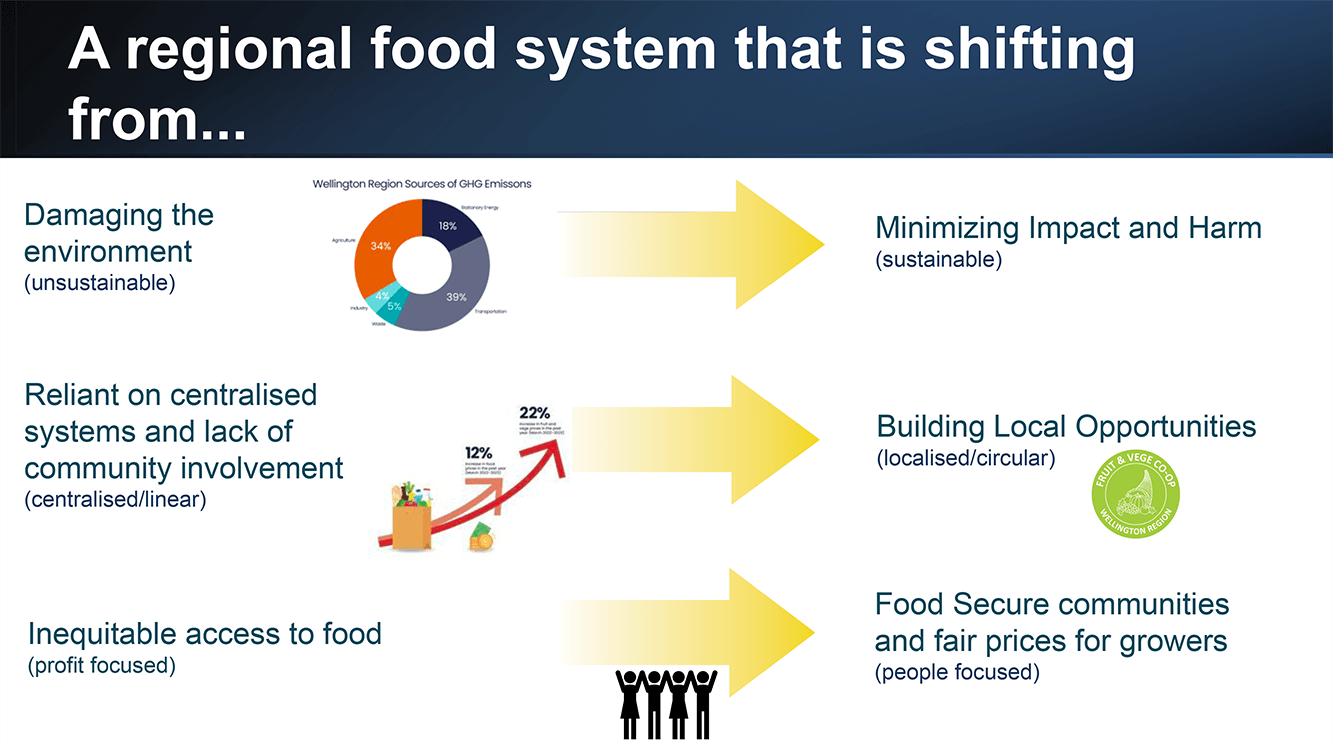Recent Updates
Webinar: Kai For All – exploring a food system strategy for our region
In this webinar, you will hear from two leading food-system thinkers, Tessa Acker and Pete...
Regional Food System Strategy – Wānanga Update
Regional Food System Strategy - Wānanga In early November, diverse stakeholders from around the...
ABOUT THIS PROJECT
This project is designed to develop our region’s first Regional Food System Plan. This is an opportunity to foster a sustainable, locally-based, and equitable food system.
Project aims
- Create an actionable plan that prioritises food security, food sovereignty, economic opportunities and community wellbeing through sustainable and local methods that benefit all aspects of health
- Strengthen community, iwi and council partnerships across the region
- Embed mātauranga Māori and Te Ao Māori concepts of food sustainability. Support opportunities for the Māori food economy as determined by Māori
- Inform future policy on aspects such as urban development, economic planning and climate change
A number of regional complementary initiatives and approaches including increased supply and demand for local, seasonal, affordable and low carbon food and reducing/preventing food wastage.
Nā tō rourou, nā taku rourouka ora ai te iwi. “With your food basket and my food basket, the people will thrive.”
Why do we need a Regional Food System Plan?
Current state of our region’s food system
- In 2021/22, 17% of Kiwi children lived in households where food runs out sometimes or often, despite New Zealand producing enough food to feed 40 million.
- Each year, we throw away enough food to feed half of our region’s population, for a year.
- In the Wellington region, 1 in 4 children experience food insecurity. The stats are worse for Pacific children.
- Our food system is currently having significant detrimental impacts on the environment, and is an obstacle to achieving food security. Outdated agricultural practices and industrial food production are two causes of significant climate pollution and the loss of land for food production.
- Our current food system is based on a linear ‘take-make-waste model’ – in which resources are used and then thrown away. This approach depletes soil nutrients, uses up natural resources and releases harmful greenhouse gas emissions which contribute to climate change.
- Local food opportunities have been impacted by supermarkets and corporates that have dominated profit-driven food systems, resulting in local food producers struggling to compete.
Our vision for our region’s food system
- To shift our regional food system to one that is regenerative, equitable, and locally-based for the wellbeing of our people and the environment.


